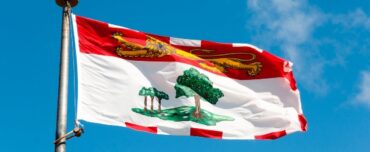Prince Edward Island budget – third consecutive surplus / small business tax relief / increased spending
The Prince Edward Island government has produced its third straight balanced budget featuring increased spending along with small business and low-income tax relief. The budget was delayed due to the spring provincial election, which resulted in a change of government. This is another good news budget for a province that continues to have one of the fastest growing economies and populations in the country. Despite the good news, there is some disappointment that the realities of a minority government kept the governing PC Party from achieving the level of tax relief that it promised in its campaign platform. Furthermore, the business community remains concerned that provincial expenditures continue to increase while the debt continues to rise.
The budget also provides for an investment in the Partnership For Growth (PFG). RCC is a member of the PFG, which is an alliance of 21 business and industry organizations that was formed in the lead up to this spring’s provincial election. The PFG has a mandate to work with government and other stakeholders to develop an economic action plan for PEI.
Background
Tax Cuts:
- The small business tax rate will drop 0.5% to 3% on January 1, 2020. The PC Party’s election promise was to lower the rate to 1% by January 2020.
- The low-income threshold will increase from $17,000 to $18,000 on January 1, 2020.
- The basic personal amount before a person pays income tax will increase from $9,160 to $10,000. The PC Party’s election promise was to increase the basic personal amount to $12,000 and tie subsequent increases to the Consumer Price Index.
Surplus and Debt:
- The 2018-19 surplus was almost $13.8 million based on total revenues of just over $2 billion. The 2019-20 projected surplus will be almost $1.8 million based on total revenue of $2.2 billion.
- The province’s $2.17 billion net debt is projected to increase to $2.24 billion by 2020.
- Debt to GDP ratio for 2018-19 was 31.3%. For 2019-20, it is projected to decrease to 30.7%. However, this assumption is based on projected economic growth and stable federal government transfers as opposed to any focused debt repayment plan.
Other Budget Items of Note:
- Corporate tax revenue surpassed budget estimates by 16.4% last year and is projected to increase by another 4.5% in 2019-2020.
- HST revenue surpassed budget estimates by 2.9% last year and is projected to increase by another 3.2% in 2019-2020.
- Cannabis tax revenues were down 14% from projected 2018-19 totals. The optimistic estimate for 2019-20 would see a 357% increase in tax revenues.
- Tobacco tax revenues were down 5.3% from projected 2018-19 totals. The estimate for 2019-20 would see a continued decrease of 1%.
- Real GDP for 2018 was 2.6%. For 2019, it is expected to grow by 1.9%
For Home Improvement Retailers:
- An additional $4.4 million to support the building of affordable housing units in partnership with communities and developers.
- An additional $2.2 million for rent supplements.
Environment:
- The government announced $4.1 million in new investments to combat climate change.
- Clean energy rebates and a new incentive program for Islanders to install solar energy systems.
- Re-announcements of previous government initiatives involving HST rebates for electricity and wood heating.
Agriculture / Fishery and Aquaculture:
- An increase of $5.7 million in agri-insurance to better protect growers and producers.
- An investment of $2 million in the Atlantic Fisheries Fund.
For Retailers Dependent on PEI’s Tourism Industry:
$600 thousand towards hosting the Congres Mondiale Acadien
Infrastructure:
- An additional $130 million has been added to the infrastructure budget (most of it coming from an increase in federal funding) to fund projects related to roads and bridges ($56 million), water and wastewater ($13.8 million), high-speed Internet initiatives ($17.4 million). There is also a desire to spend on active transportation corridors for cyclists and walkers.
Next Steps
Now that the budget has reached a level of sustainability and critical investments are underway, Retail Council of Canada (RCC) will continue to remind all Parties of the need to develop a plan to pay down the province’s debt. In addition, RCC will continue to remind government that corporate and HST revenues are surpassing budget estimates. The government’s improving financial position is due to the ongoing sacrifices made by PEI retailers. It is time for responsible corporate tax and HST relief.
If you have any questions or concerns, please don’t hesitate to contact: Jim Cormier, Director (Atlantic) at: jcormier@retailcouncil.org or (902) 422-4144



